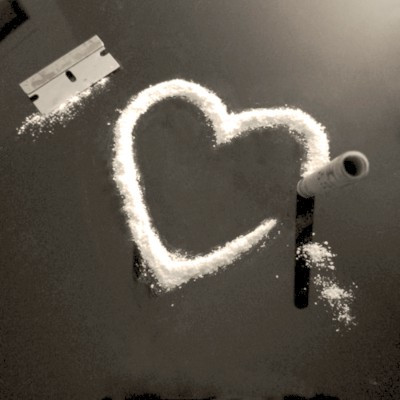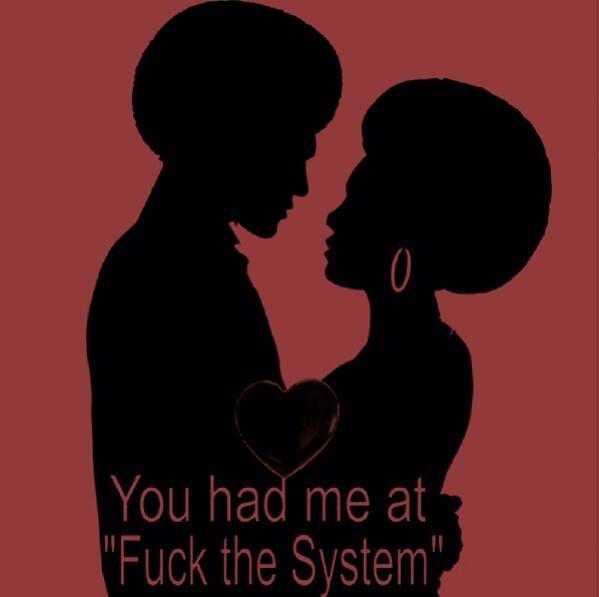The Search for Romantic Love
Most people — especially those brought up in the West — have been conditioned to believe that so-called romantic love is the most important pursuit in life and that only the ones who’ve found it are fulfilled.
From the tender age of one or two, we are told of fairy tales that end with two people of the opposite sex living “happily ever after.” As we age, novels, magazines, pop songs, television, Hollywood scripts, and self-help workshops reinforce the idea that romantic love is the ideal form of love.
We are led to believe that our happiness heavily depends on romantic love, and that our personal worth is reflected in how good we are with our romantic relationships. Not surprisingly, when we’re single or we don’t experience love as it’s usually portrayed, we wonder if there’s something wrong with us. We think that we’re missing out on true love and are anxiously praying for that moment when the fair maiden or prince will save us from our desperate situation.
As we are, we feel emotionally empty — something is lacking within our psyche that needs to be filled, yet we can’t do that on our own. Only another person can do it, and unless we are lucky enough to connect with him or her, we won’t ever discover pure joy and lasting contentment.
The belief that we’re not complete as we are and that we need someone else to fill in our sense of existential emptiness isn’t a modern one. In fact, it’s ancient.
In Plato’s ~2,500 year-old philosophical text Symposium, the comic playwright Aristophanes describes the origins of humanity. As he points out, the original form of man was a four-legged, four-armed, double-sexed entity. Zeus, however, was afraid that humans might steal the power of the gods, so he decided to take away their power by having them sliced in half. According to Aristophanes, their heads turned “towards the wound, so that each person would see that he’d been cut and keep better order.” This, he explains, is why each human being is craving for a significant other to complete them. In his own words: “Now, since their natural form had been cut in two, each one longed for its own other half, and so they would throw their arms about each other, weaving themselves together, wanting to grow together.”

Image credit: Tom Stockmann
If taken literally, Aristophanes’ recount is total nonsense, yet metaphorically it shows the central role that romantic love plays in our lives: We are in an endless search for that “special someone” — the soulmate — the universe created just for us, and we are willing to give up anything to “lose ourselves” in his or her embrace.
Romantic Love as Addiction
The moment we fall in love, the world turns into a magical place. Suddenly, life becomes more beautiful, adventurous, meaningful… in short, life becomes worth-living again. The only problem is that, having experienced the emotional high of romantic love, we want more of it, yet no matter how much of it we get, our thirst for it is never quenched.

In other words, romantic love is addictive. In fact, research has shown that falling in love can have a similar impact on the brain as cocaine. To study the brain function of people engaged in romantic love relationships, biological anthropologist Helen Fisher put a group of participants through MRI brain scans. Interestingly, what she found was that they behaved just like addicts: They had obsessive thoughts, participated in risk-taking activities and found it hard to deal with withdrawals.
The brain of people in love secretes an ample amount of hormones like dopamine, norepinephrine and serotonin — hormones that boost their pleasure and confidence levels. Feeling the exhilarating psychological effects of this hormonal boost, everything seems perfect to the romantic love addict. The promises of fairy tales have come true. At last, life is as it’s supposed to be. Yet, once the initial high fades, everything changes. Life becomes mundane, ordinary, boring once again.
This return to “normal” reality is usually enough to bring a relationship to an end. Once that happens, the romantic love addict will soon come face-to-face with that sense of inner emptiness which has forever been torturing his/her psyche. Then, to deal with his/her withdrawal symptoms, the romantic love addict will go off in search of a new hit, and the story will repeat itself one more time.
Romantic Love: A Dangerous Self-Delusion
As you can understand, romantic love is temporary — it comes quickly and goes away just as fast. No matter how strong the feelings of lust and passion in new relationships might be, they are soon bound to disappear into thin air, as the power of romantic love loses grip over our emotional world. But while we’re possessed by romantic love, it’s so overwhelming that it distorts our perception and often leads us into making choices that we will later regret.
For example, projecting their long-yearned fantasies upon their “other half”, it’s a common phenomenon for people in fresh romantic love relationships to exaggerate the positive traits of their partner and reduce or deny the negative ones. This illusion makes them believe they’ve found their one and only perfect match. Feeling a sense of total acceptance and adoration for their partner, they are under the impression that their love is going to last forever. As a result, they tend to make quick, immature choices, such as hurrying to marry, only to find years later that they resent their partner for failing to meet their expectations.
Romantic love is a blind self-delusion — it only exists in the realm of fantasy, an imaginary world that we’ve cultivated with the help of the romantic tradition, mainly through media programming. Just like pornography fools us into believing that perfect sex exists, the romantic tradition fools us into believing that perfect relationships exist.
Yet, romantic love isn’t just delusional — it can also be dangerous once we’ve fallen into its trap. Not just because of the wrong choices it can urge us to make, as mentioned earlier, but first and foremost because it creates an ideal out of love that nobody can possibly reach (because it doesn’t exist in the first place — in fact, that’s the very reason why it’s called ideal). Hence, no matter how nice, compatible people we date, the yearning for the perfect romantic relationship with the fairy tale Dream Lover will always lead us to disappointment. Obsessed with a fantasy world, we can’t enjoy reality.
Escaping the Trap of Romantic Love
To escape the trap of romantic love is quite difficult, considering that we have a billion-dollar industry that is day in and day out promoting a misrepresentation of actual love relationships, in effect making a profit from the exploitation of our deep-rooted emotional need to love and be loved.
You see, capitalism doesn’t give a damn about love. In fact, the less we love one another, the better it is for capitalism. From the market’s standpoint, it’s good that we’re unhappy with our relationships, because then happiness can be sold to us through products and services that promise to substitute for the loss of connection that we long for.
Unfortunately, we’re so desperate that we’ve bought into those promises. This is reflected in our efforts to show our partners love through the act of buying stuff. Take, for example, Valentine’s day, when couples have been persuaded to blindly consume things, thinking that this will elevate their relationship.
But how can an expensive ring substitute for a tight, filled-with-loving-warmth hug? And how can a ready-made meal in a high-class gourmet restaurant substitute for a sincere, intimate look into the beloved’s eye?

What we need isn’t more stuff, just like we don’t need more romantic movies. Neither, of course, do we need the Ideal Lover from the dreamworld. All of these offer us nothing of what we need, and only mess up with our hearts.
What we actually need is more understanding.
We need to understand that there’s no person out there who will complete us.
If we feel a sense of emptiness within, we’re going to keep on experiencing it no matter how many romantic love partners we spend our time with. That’s because our inner emptiness is nothing but a lack of self-love. Therefore, unless we’re able to love and accept ourselves, we’ll always feel incomplete, regardless of how much love is shown to us.
We need to understand that we can’t love another unless we first love ourselves.
Healthy love relationships can only exist between two already complete, fulfilled people who decide to enrich their lives by sharing their overflowing-with-love hearts. Unfortunately, most of us are emotional beggars seeking for completion in another person, only to find that our emptiness is actually deepening once we wake up to the fact that our partner is just as empty as we are.

We need to understand that love relationships are based on freedom.
Normally, partners are trying to fit each other into their fantasy image of how the Ideal Lover should look and behave like, not realizing that by doing so they’re depriving them of their freedom to be themselves. This inevitably results in a constant state of conflict that ultimately turns relationships into prisons of emotional torture.
Just like birds need freedom of space so that they can soar into the skies, partners in an intimate relationship need the freedom to be themselves so they can spread their wings of love and fly to the peaks of consciousness.
We need to understand that healthy relationships require a lot of work.
There’s no great relationship without a lot of work behind it. In other words, great relationships don’t happen to be — they are slowly built with care and effort.
No matter how special a relationship might be, hardships to one degree or another are going to be a natural of part it, and the important question is how you deal with them: Is it through discussion and understanding or through fighting and judging?
Lastly, we need to understand that the Perfect Relationship doesn’t exist.
Contrary to what the romantic tradition has made us believe, the Perfect Relationship doesn’t exist other than in our imagination.
No actual living person is without flaws, and so we need to stop projecting our fairy tale fantasies on our partners if we actually want to build genuine love relationships on the foundation of honesty, understanding and acceptance.
In addition, love relationships aren’t all passionate sex and romantic walks on sandy beaches under the filled-with-stars night sky. They’re not forever-lasting, either. In fact, they’re usually quite ephemeral. So let’s not make promises of perfect and eternal love. Let’s be honest to one another, and keep our love real. I know, this is not the stuff movies and books are made of, but the reality nonetheless, and we better accept it before we’re slapped by it hard in the face.

Love relationships can’t be perfect, but they can still be amazingly beautiful. So let’s make the most of them, by celebrating what we do have, instead of worrying about what we don’t.